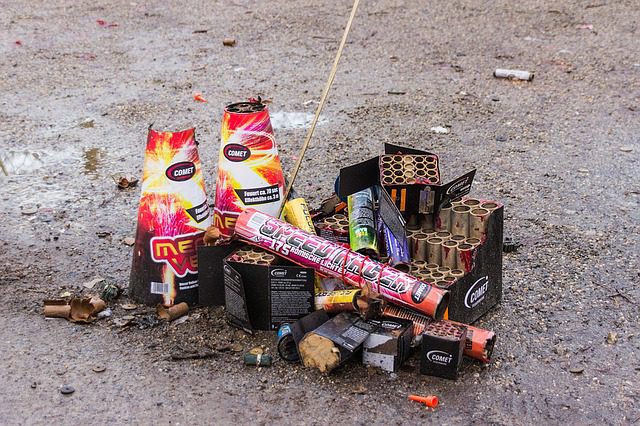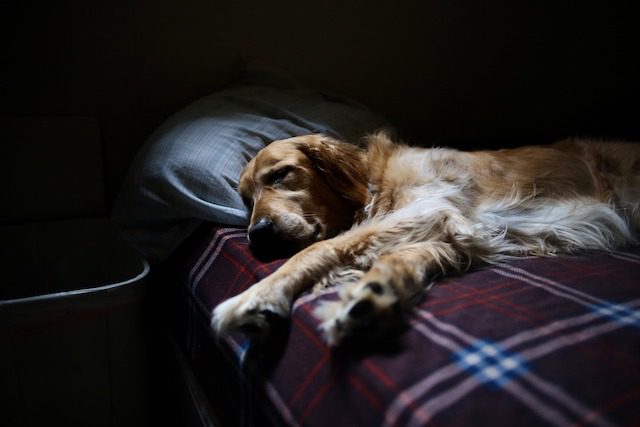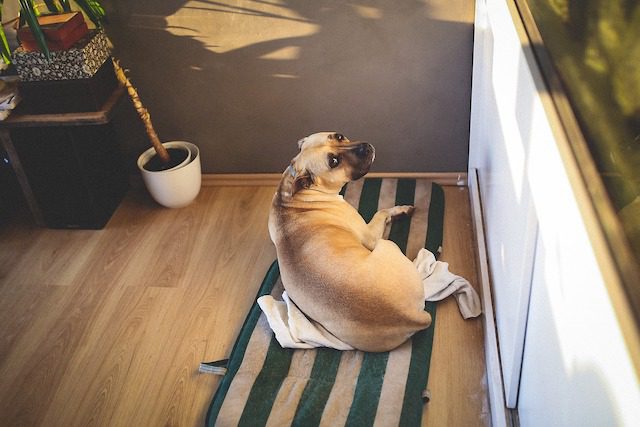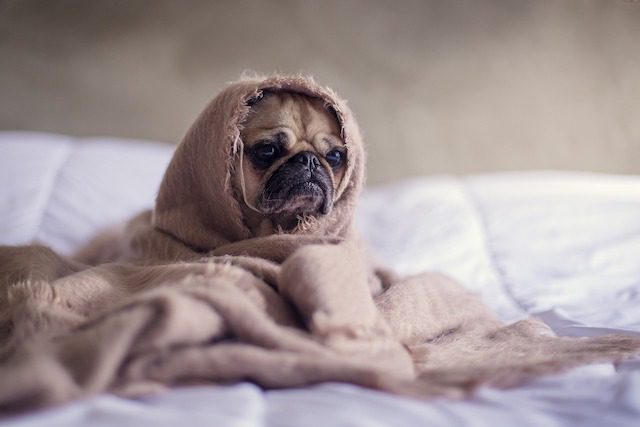More pets go missing during holidays with fireworks than any other time. In the United States alone, July 5th is the busiest day of the year for animal shelters taking in lost pets. The second busiest is Halloween, when firecrackers and fireworks are lit.

Many dogs that would otherwise be calm run away from home because of the noise and lights of fireworks celebrations. Whether it’s Independence Day, Halloween or a neighborhood celebration, nights filled with fire crackers and fireworks that can frighten pets. Some dogs react to fireworks much like they would react to a thunderstorm and will panic and act irrationally.
With that in mind, here are some tips for keeping dogs calm and safe during celebrations:
- If you are going out to a live fireworks display, strongly consider leaving your dog at home. The crowds, commotion and loud sounds can be stressful to even the most well-behaved dogs. And, in stressful situations, some dogs may even bite. But if you do bring your dog along:
- Keep dogs cool. If you do decide to bring your dog with you to a celebration, never leave him/her in the car and monitor your dog for heat exhaustion and heat stroke.

-
- Don’t let dogs near unlit or lit fireworks. If you end up having your dog around a firework display, keep the dog leashed and away from them. Just like a curious child, a dog may approach fireworks when they are lit, and this can cause severe burns and/or trauma to your dog. Unlit or spent fireworks pose a threat as well as ingredients are toxic if your dog ends up chewing on them.
- Keep your dog on leash at all times. Sudden noises and the commotion may prompt your dog to run off.
- Before the fireworks start, bring and keep your dog inside. Shelters say that most dogs that they taken in have been left in yards during fireworks. The dogs either dig their way under fences or jump over them to escape the noise.
- Opening and closing doors. If people in your home are going inside and out frequently, take the precaution of having your dog under control (or and on a leash) to prevent him/her from bolting away unexpectedly.

- Keep windows and doors closed. Do not leave your dog in rooms with open windows during fireworks. Dogs have been known to leap out of windows or bolt through open doors to escape the noise as well.
- Provide your dog a safe place, like a crate, if they have storm phobias. Make sure your dog has a safe “den” to retreat to, whether this is their regular crate, under your bed, or on favorite blanket. It is very important a dog does not feel trapped. If a dog goes into a panic he/she can hurt him/herself trying to get out.

- Minimize external noise. Close the windows, blinds or curtains in a safe room for your dog. Playing background noise (white noise), such soothing music, or put on the air conditioner, television or radio, can help with this.
- Keep dogs away from barbeques. The smell of cooking meat is a temptation to any dog. A dog can get easily burned or punctured on the barbeque and utensils, so dogs should also be kept away.
- Keep dogs away from mosquito control products. Citronella candles, insect coils and DEET products are toxic to dogs.
- Keep dogs away from the food table. Celebrations are filled with fun foods and drinks which may not healthy to dogs. Examples of everyday hazards include avocados, grapes, raw/undercooked meat, onions and alcohol, raisins, chocolate. Read our article on Toxic Foods for Dogs for more information.
- Consider medicinal treatments. Dogs with severe anxiety symptoms may benefit from a drug therapy or a naturopathic therapy such as Dog Appeasing Pheromone (D.A.P.). Consult with your veterinarian as to whether anti-anxiety drugs may be suitable. You can also try using any snug dog shirt, sweater or jacket or an anti-anxiety clothing product such as a Thundershirt to see if it helps calm a dog’s nerves. Remove the garment if your dog show any signs of overheating or becoming more stressed with it on.

- Make sure dogs have identification. Even if you leave your dog indoors, make sure your dog has his/her identification tags on and is microchipped in case if he/she happens to gets loose and runs away. If your dog does go missing check with your local shelters within 24 hours. Dogs left at a shelter for more than 48 hours risk being adopted out or even possibly euthanized!
Have a safe celebration with your pets!
Disclosure: This post may include affiliate links.
